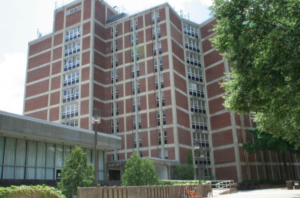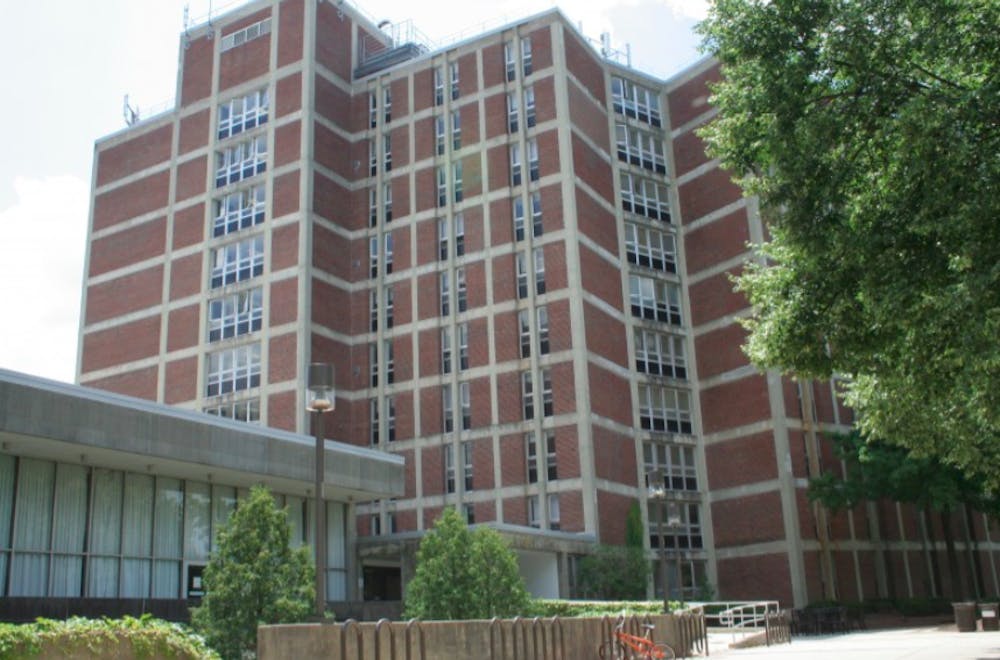By Joseph Baldofsky
It is an undeniable fact that the College has had many physical improvements in our academic facilities under the leadership of former College President R. Barbara Gitenstein. After all, during her first year as president, the College announced its plan to have all newly built or recently renovated academic buildings by the 2004-2005 academic year, according to the September 7, 1999 issue of The Signal.
However, such quick advancement has yet to be mirrored in the residence halls. Although small renovations have taken place over the past decade in numerous residence halls, these renovations placed an emphasis on bathroom facilities and updated pipes. The more drastic renovations in Cromwell Hall, according to the Residential Education and Housing website, took place during the 2012-13 school year. While this included updated bathroom facilities, an updated lounge, cosmetic changes and a change in exterior appearance, it did not include competitive amenities such as air conditioning, according to the September 10, 2013 issue of The Signal.

Hence, the largest advancement in residence halls over the past decade would be the construction of the apartments, which was completed in 2009, according to Residential Education and Housing. Yet, take a walk behind the buildings and notice that the facade is still incomplete.
So, what is the current state of our residence halls, and what issues need to be addressed?
The impending renovation of Travers and Wolfe Halls will greatly affect not only the amenities of housing, but also the entire housing community. The largest residential project overseen by the college since their original construction in the early 1970s, this renovation make more than 500 beds unavailable during the renovation of each tower, possibly causing a housing shortage.
Since the College stresses students’ first-year experience and providing a sense of community, it would be at our disadvantage to place freshmen in hotels (as was done during the renovations of Cromwell and Decker). Rather, freshmen would find themselves placed non-traditional freshman housing across campus.
Consequently, the housing lottery will begin to play a larger role in upperclassmen housing decisions. The lottery these past few years has provided a time slot for each student who applied for housing, but due to limited space, those who seek housing may be forced to move off campus.
Although there are many attractive alternatives with Campus Town and off-campus houses, losing residential students would largely impact the College’s communal experience and greatly decrease funding. At about $8,000 a year for housing, the loss of 500 beds would eliminate $4 million in revenue.
Thus, over the next three years leading up to the start of renovations, the College must create a sound plan to financially stabilize the housing department while also continuing to foster a strong on-campus community.
Unfortunately, the improvement of residence halls cannot be forgotten after the completion of the Towers’ renovation. Following its completion, attention must be given to the Townhouse complexes.
Built in the ’90s, these complexes were quickly constructed as a response to a high demand for housing. Whether it be the thinness of the walls or the faulty heating and cooling systems, any student who has lived in the Townhouses can attest to their poor construction.
Non-temporary solutions will need to be created in order to accommodate our growing campus. Whereas the Towers’ renovation was continually pushed off (having been first mentioned in the March 23, 1999 edition of The Signal), it will become imperative that a solution for the Townhouses not be postponed much further.
It is undeniable that most residence halls require serious renovation efforts. The renovation of the Towers, which is slated to include air conditioning, floor lounges and wet-core single-stall bathrooms, will cause them to become the most advanced residence hall for underclassmen. While a positive change, this will create an inequality among on-campus housing across grades. Whereas first-year students will experience the newest facilities, sophomores and juniors will be pushed aside.
As our institution continues to grow and gain national recognition, our residence halls need to reflect such growth and competitiveness.
Students share opinions around campus
"How can residence halls be improved?"

"Definitely temperature control."

"They need air conditioning and maybe more laundry rooms."







